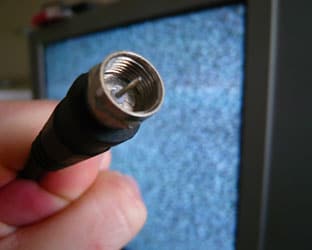The horizontal and vertical pricing power that will accrue to the merged entity if and when Comcast and NBC Universal go down the aisle will give it market power that will add up to $2.566B in consumer subscription increases, against only about $204M in consumer benefits, according to a study by a professor and former FCC economist, and released by the American Cable Association.
The report is by Dr. William Rogerson, professor of economics at Northwestern University, who served as the FCC’s Chief Economist for the 1998-99 academic year.
ACA wrote, “In breaking down the harms by programming, Rogerson shows that the transaction will cause $1.6 billion of harm through its effect on the fees charged for NBCU national cable networks, $651.2 million of harm through its effect on the fees charged for Comcast RSNs and $355.6 million of harm through its effect on the retransmission consent fees charged for NBC O&Os. Professor Rogerson’s analysis shows that by not imposing conditions on NBCU’s national cable networks, the government would leave nearly two-thirds of the transaction’s harms unaddressed.”
Rogerson notes that markets where Comcast operates regional sports networks will be the hardest hit of them all. They include Philadelphia, Chicago, San Francisco, Washington DC and Hartford CT.
ACA’s Matt Polka commented, “It is clear that the Comcast-NBCU deal will send monthly cable bills higher by billions of dollars over the next decade, underscoring ACA’s view that regulators must protect consumers and competition from a transaction whose benefits are vastly outweighed by its harms. Without meaningful and cost effective conditions on the Comcast-NBCU transaction, regulators also run the risk of crippling effective competition in the pay-TV distribution market.”
ACA suggested a menu of conditions it feels must be attached to regulatory approval of the merger:
“All pay television providers, including bargaining agents, that cannot reach a mutual agreement with Comcast-NBCU for any of its programming may submit a dispute to binding baseball-style commercial arbitration. This arbitration shall apply not only to Comcast-NBCU’s NBC stations and RSNs, but also to its national cable networks. For smaller operators who cannot afford binding baseball-style commercial arbitration, Comcast-NBCU shall be prohibited from requiring any pay-TV provider with 125,000 video subscribers or fewer locally to pay a fee for an NBC station or RSN that is 5% greater than the lowest fee paid by any other local pay-TV distributor for that market’s NBC station or the area’s RSN . The general conditions applicable to all pay-television providers and the special conditions for smaller ones shall be available to all providers that negotiate for programming with Comcast-NBCU, not just those operators that compete head-to-head with Comcast’s cable distribution systems. Comcast-NBCU must sell its NBC broadcast stations and RSNs on a stand-alone basis to all pay-TV distributors, meaning each NBC station and RSN cannot be bundled with carriage of any other video programming network.”
Polka concluded, “Comcast’s suggestion that because ACA has proposed similar remedies in prior program access rulemaking proceedings, no form of these remedies could now be transaction specific in a deal that involves vertically integration is incorrect and self-serving. The FCC has never applied such a standard. ACA’s remedies will be judged by the FCC based on their merit in lessening the documented harms of the transaction.”




